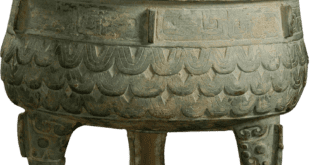The Beauty and Richness of Cultural Anthropology
Cultural Anthropology is a field of study that explores the dynamic aspects of literature, tradition, languages, beliefs, and practices of human societies. Often referred to as the “study of humanity,” this discipline understands the diversity and complexity of different cultures worldwide. Starting from as early as 19th century researchers have been documenting cultural practices and traditions all around the world. Every culture has traditional practices, teachings as well as defining elements that embody that culture’s essence.
Origins of Cultural Anthropology
Cultural Anthropology, at the very beginning, was initially theorized through works by George Lubbock in 1833, but really took off after it was put into practice at George Parkman’s Anatomy Institute at Harvard University. This discipline became increasingly influential in the beginning of the 20th century as many researchers began to expand upon existing theory as well as approach different parts of the world outside of western spheres of influence. It is all a direct result of cultural anthropologists always actively searching and studying different branches of tradition and cultural norms.
Importance of Cultural Anthropology
Cultural anthropology sees the culture of any people as a reflection of that particular people. It seeks to grant equality to all races and civilizations in the eyes of anthropology, accomplishing this with science-based discovery and analysis – this places cultural anthropology at a premier academic discipline for studies. Therefore, cultural anthropology studies permit individuals to appreciate the values that drive a culture, gaining humanitarian perspectives that can potentially inform their contemporary lives.
h2>The Importance of Traditional Practices and Beliefs
Traditional practices and beliefs, as viewed via a cultural anthropology lens, are generally passed down through generations. Its exploration leads diversification of the ideas and practices between the various cultures people around the world. Additionally, all different discovered facets give appreciation, tolerance for diversity within a universal holistic approach to anthropological study. Perpetuating traditions assist societies in keeping alive heritage despite changes in their world versus tradition that becomes obsolete by newer technology, therefore anthropological experts focus on discovering the uniquely systemic ways in which culture has stayed timeless or adopted change.
The Many Areas of Study within Cultural Anthropology
Cultural Anthropology study areas can be classified into four groups: social organization, language, economy, and culture. In regards to social organization, cultural anthropologist explores the intriguing behavior when people group themselves together based on geographical, market-based or interpersonal laws of organization for the benefit of the overall group. With respect to vocabulary, cultural anthropologist tackles questions related to social interaction based language and creates comparisons to uncover underlying structure despite the particularist nature of distinct phrases between diverse cultures. With regard to the economy, cultural anthropologist scrutinizes capitalism, dependence, all social values that drive different motivations between the hardworking people of various culture. Lastly, cultural anthropologist emphasizes the vital universal element – culture – where study fields lend towards art, science, technology, ethnography fundamentally delving at the core of being historically human; The Neverending variety of ways in which humans live their lives is attended to open-minded of anthropologists.
Conclusion
In conclusion, cultural anthropology adequately reflects the depth, mystery, and uniqueness of human societies. The facets covered are diverse due to the united abundance present that makes and creates every culture. Studying cultural anthropology unlocks an understanding into the needs of human beings beginning from their ancestry, beliefs, and valuable cultural practices at the present day (And why currently massive transformation is inevitable worldwide). The merited culturally educational dividend is increasing awareness and reaching shared appreciation for all the world’s awe-inspiring differences while deriving a scientific bridge via anthropological study in uniting past, present and remaining cultural perceptions of humanity.
 Mind Uncharted Explore. Discover. Learn.
Mind Uncharted Explore. Discover. Learn.


